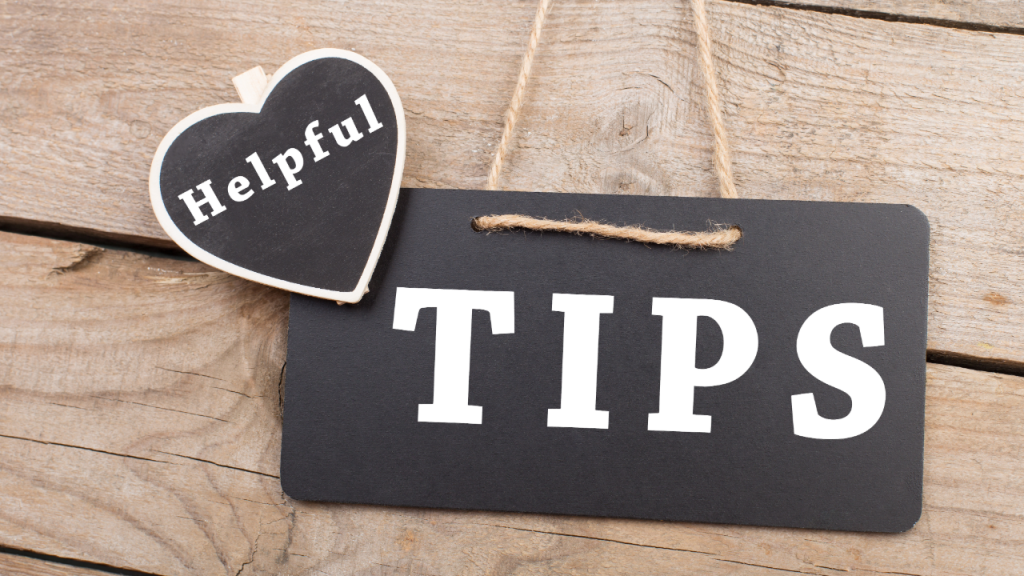Navigating Love
The Power and Perks of Couples Counselling
By Kimberley Payne and Darren Wilk
Relationships, with all their love, laughter, and inevitable quirks, can sometimes feel like navigating a labyrinth. Whether you’re in the honeymoon phase or have shared decades together, every couple encounters moments where a little guidance can make a world of difference. Enter Couples Counselling: an often misunderstood yet profoundly beneficial tool that can help partners strengthen their bond, improve communication, and navigate life’s twists and turns together. In this article, we’ll explore the magic of couples counselling, debunk some myths, and showcase how it can transform relationships in delightful and unexpected ways.

What is Couples Counselling?
Couples Counselling, also known as Couples Therapy or Relationship Counselling, is a type of psychotherapy aimed at helping partners improve their relationship. A registered/licensed therapist works with the couple to identify issues, enhance communication, and develop strategies for a healthier, more satisfying relationship. Whether it’s dealing with conflicts, addressing specific issues, or simply aiming to deepen the connection, Couples Counselling offers a safe space for partners to explore, heal and grow together.
Common Myths About Couples Counselling
Myth #1: It’s Only for Couples in Crisis
One of the most prevalent myths is that counselling is a last resort for relationships on the brink of collapse. In reality, couples counselling is beneficial at any stage of a relationship. Whether it’s during the first few years of a relationship, preparing for marriage, preparing for a new baby or during the empty nest years, Couples Counselling is like a health check-up for your relationship—regular sessions can keep things running smoothly and prevent minor issues from becoming major problems.
Myth #2: The Therapist Will Take Sides
Many fear that a counsellor might favor one partner over the other. However, a skilled therapist remains neutral, helping both partners express their feelings and perspectives without judgment. The therapist sees the relationship as a unique client and holds a safe space to honor the relationship. Helping both partners express their feelings and perspectives without judgment. The goal is to facilitate understanding and cooperation, not to assign blame or take individual sides.
Myth # 3: Couples Counselling is Only About Talking
While communication is a significant part of counselling, it’s not just about talking. Therapists use various techniques and exercises to help couples connect, understand each other better, and find practical solutions to their issues. This can include role-playing, active listening, emotional regulation, self-soothing, mindfulness exercises, and homework assignments designed to reinforce what’s learned in sessions.
The Benefits of Couples Counselling
1. Create a Safe Space for You and Your Partner
During moments of conflict in relationships feeling safe is something both sides struggle with. To truly navigate conflict, we must be willing to be vulnerable, to be open, and to be honest. This vulnerability can be extremely scary. Couples Counselling can create a safe space where boundaries are set and enforced, and a neutral third party can offer support and guidance as they oversee our discussions. A Couples Therapist can intervene when necessary to support our relationship and counselling goals. They can coach us to use new communication skills, practice active listening and keep us on track during sessions so that we don’t become dysregulated, critical or defensive. A Couples Therapist can help us to listen and understand our partner’s perspective without jumping to conclusions. This enables us to be vulnerable, to open up and communicate effectively, while still feeling that we are safe in the process.
2. Improved Communication Skills Within The Relationship
One of the primary goals of Couples Counselling is to enhance communication within the relationship. Many conflicts arise from misunderstandings or lack of communication. A therapist can teach couples how to express their thoughts and feelings more effectively and listen to each other with empathy and understanding. All couples have communication problems. This is because 70% of communication is miscommunication. The goal is to repair better and more quickly when things go off the tracks.
3. Conflict Regulation Skills
Every couple argues and conflict is normal, but how they argue and manage their conflicts can make a huge difference. When conflict is managed well it actually helps grow and build trust within a relationship. Couples Counselling helps partners learn healthy ways to manage conflicts, ensuring that disagreements don’t escalate into destructive battles. Techniques such as active listening, using “I” statements, and taking time-outs can make conflicts less stressful and more constructive. In addition, therapists can also help couples understand the difference between perpetual conflicts and resolvable conflicts and teach couples the skills needed to live with perpetual conflicts in a healthy way.
4. Strengthening Emotional Connection
Over time, it’s easy for couples to drift apart emotionally. Counselling provides a space to reconnect, share feelings, and rediscover what brought you together in the first place. Building a deeper emotional bond can reignite the spark in the relationship. It can renew shared meaning in a relationship and support each other’s hopes and dreams for the future.
5. Addressing Specific Issues
Whether it’s financial stress, parenting challenges, infidelity, or sexual intimacy, couples counselling can address specific issues head-on. Couples will often have some conflicting views about these big topics. These conflicting views stem from the individual personalities in the relationship and the lifestyles that the individuals are accustomed to. When we are single, these issues and views don’t’ seem to be as problematic as they are when we are in a relationship. In relationships, having conflicting views on big topics can result in power struggles, “giving in” and resentment. A couples therapist can help partners navigate these topics with sensitivity and care, finding solutions that work for both parties.
Couples Counselling offers opportunities to problem-solve together and create compromises that can honor the relationship and the individuals in it. When aiming for a compromise, the goal is to balance the individual needs of both partners with the overall needs of the relationship. A couples therapist can support us as we work towards compromise and can keep us on track towards our shared goals without “giving in” or conceding.
There is a big difference between “Giving In” and creating compromise. “Giving In” also known as accommodation, involves yielding to the desires or demands of others. It typically involves putting the needs and preferences of others before our own, often to avoid conflict and maintain harmony. But “Giving In” often creates resentment. And resentment can quickly become extremely toxic. It can erode the safety, connection, intimacy and trust within a relationship. Compromise, on the other hand, requires active participation from both parties, aiming to meet the needs and desires of both sides to a certain extent. It involves a process of negotiation, communication, and willingness to give up some individual preferences for the sake of finding a solution that satisfies both parties and supports the relationship. When we choose to negotiate and compromise rather than accommodate and “Give In”, there will be less chance for resentment in the deal that is made.
6. Personal Growth
Couples Counselling isn’t just about improving the relationship; it’s also about individual growth. Understanding your partner better can lead to greater self-awareness and personal development. It’s a journey of growth for both partners, individually and together.
7. Deepen Your Intimacy and Physical Connection with Your Partner
One of the biggest benefits of Couples Counselling can be the effect it can have on intimacy and physical connection with your partner. Intimacy is a common problem for many relationships, especially when you’ve been together for a long time, and it feels like that spark has dimmed. The lack of physical connection can lead to feelings of isolation and abandonment within the relationship. For a couple to experience a great sex life, they must feel physically and emotionally safe together, and they must have a strong foundation of friendship and closeness. With the support of a couples therapist, you can open up healthy communication around sex, learn each others sexual preferences, explore sensuality, and build sexual safety in your relationship. Enhancing the emotional closeness within the relationship, becoming more in tune with each other’s emotional and sexual needs, and being able to address communication barriers, emotional disconnects, and intimacy issues, Couples Counselling provides a pathway to a healthier, more fulfilling sex life.

Tips for Getting the Most Out of Couples Counselling
1. Be Open and Honest:
Counselling is a safe space to express your true feelings. Honesty is crucial for making progress. If we leave things out of the conversation because of fear or uncertainty, we only share half of our truth. We need to be brave and have courage to share the good, the bad, and the ugly with our partner in order to uncover the magic that can be created by connecting whole heartedly with each other. We cannot move forward to experience the joy and the happiness that our relationship can create for us in our future while carrying resentment or anger with us from our past.
2. Be Willing to Listen:
Both partners need to listen actively and empathetically. Understanding your partner’s perspective is key. This does not mean that you have to agree with their perspective, but it does mean that you are actively trying to understand their perspective. Be curious, ask questions and seek to understand before asking to be understood. Listen to your partners ideas and feelings to learn more about their experience and try to see things from their viewpoint.
3. Commit to the Process:
Change doesn’t happen overnight. Commit to the process and be patient with yourselves and each other. Stay committed to the process and be prepared for some setbacks along the way as growth is rarely a linear experience.
4. Practice Outside the Sessions:
Apply what you learn in your counselling sessions to your everyday life. Homework assignments and practicing the exercises can help reinforce your new skills.
5. Choose the Right Therapist:
Find a registered/licensed therapist who specializes in Couples Counselling and makes both partners feel comfortable. If both partners aren’t comfortable, keep looking for the right fit. Both partners need to believe that the therapist they are seeing has the skills and experience needed to support the relationship and its growth.

In Conclusion
Couples Counselling is a powerful tool for building stronger, healthier relationships. Research has shown that individuals in healthy romantic relationships live longer, make more money and are physically and mentally healthier than those who are single or in unhealthy relationships. Whether you’re facing significant challenges in your relationship or simply want to enhance your connection, and deepen the intimacy that is already there, Couples Counselling offers valuable insights and strategies. Remember, every relationship can benefit from a little expert guidance every now and then. Embrace the journey of growth and discovery with your partner and watch your relationship flourish in ways you never imagined.
—
Have you and your partner tried couples counselling? Share your experiences, insights, or questions in the comments below.







